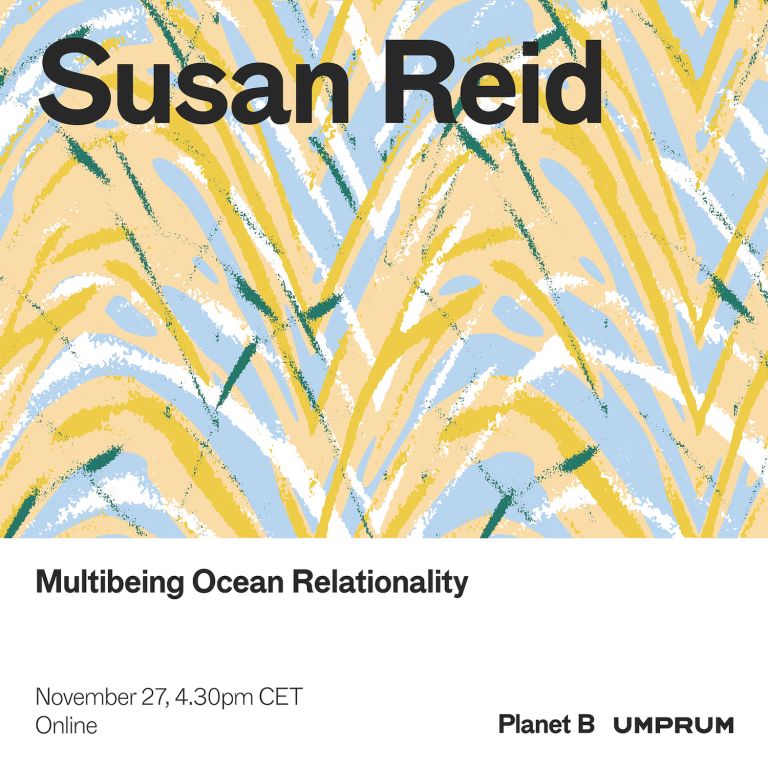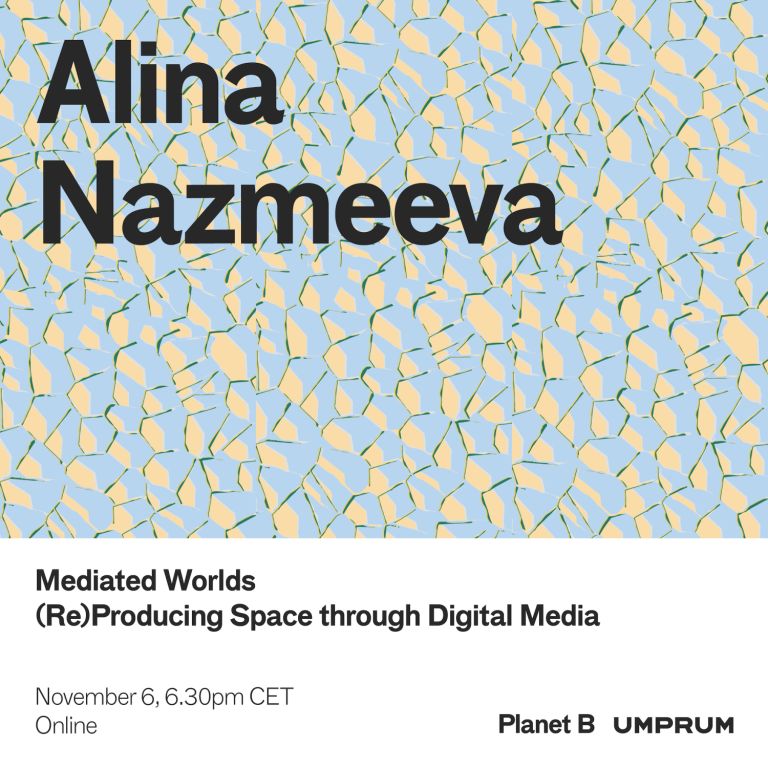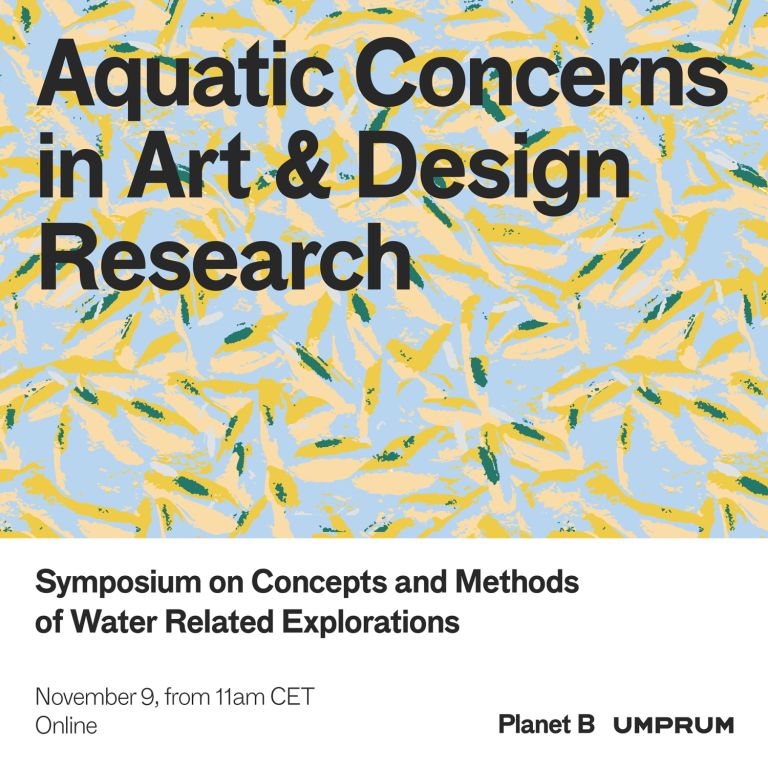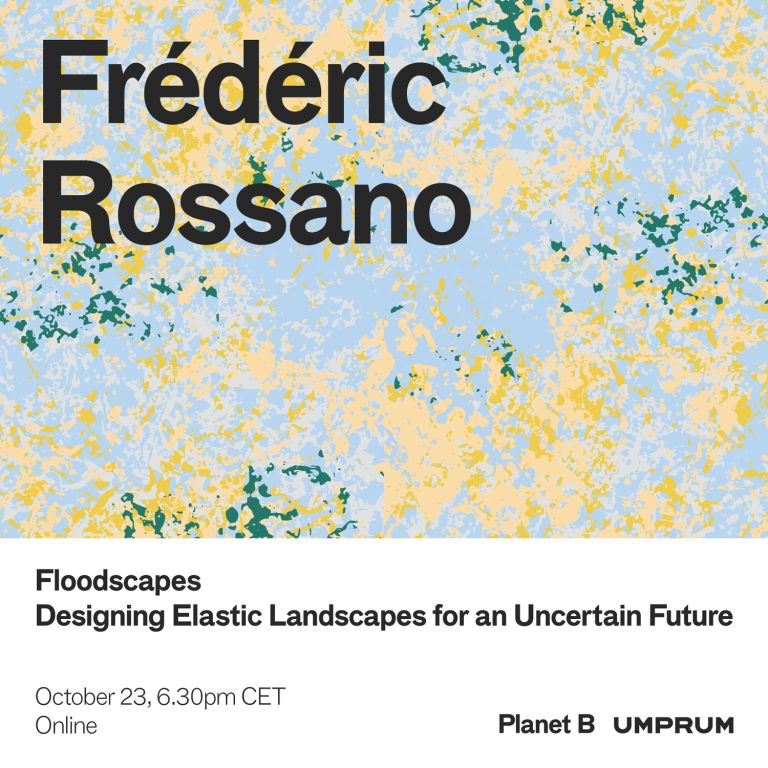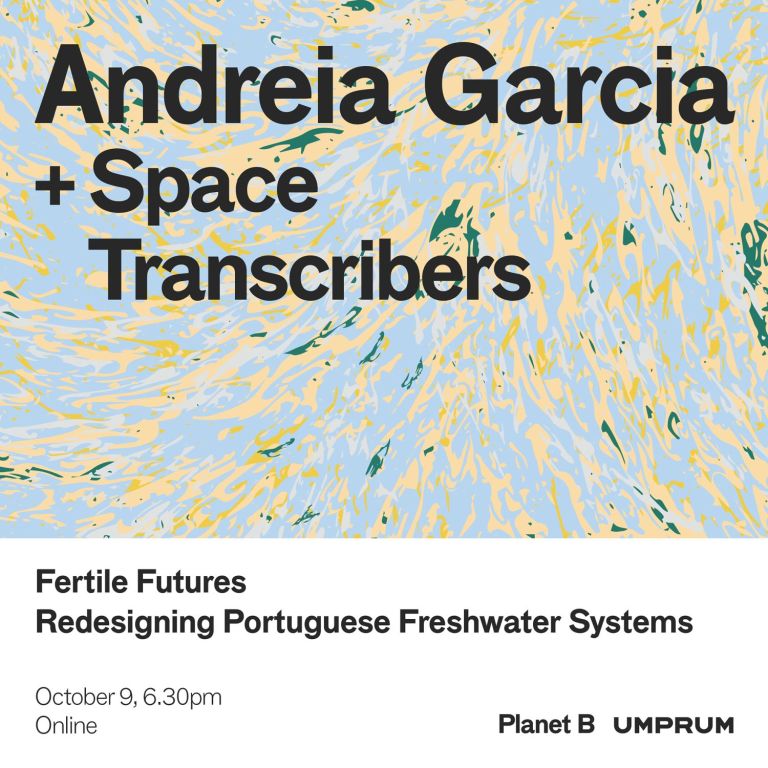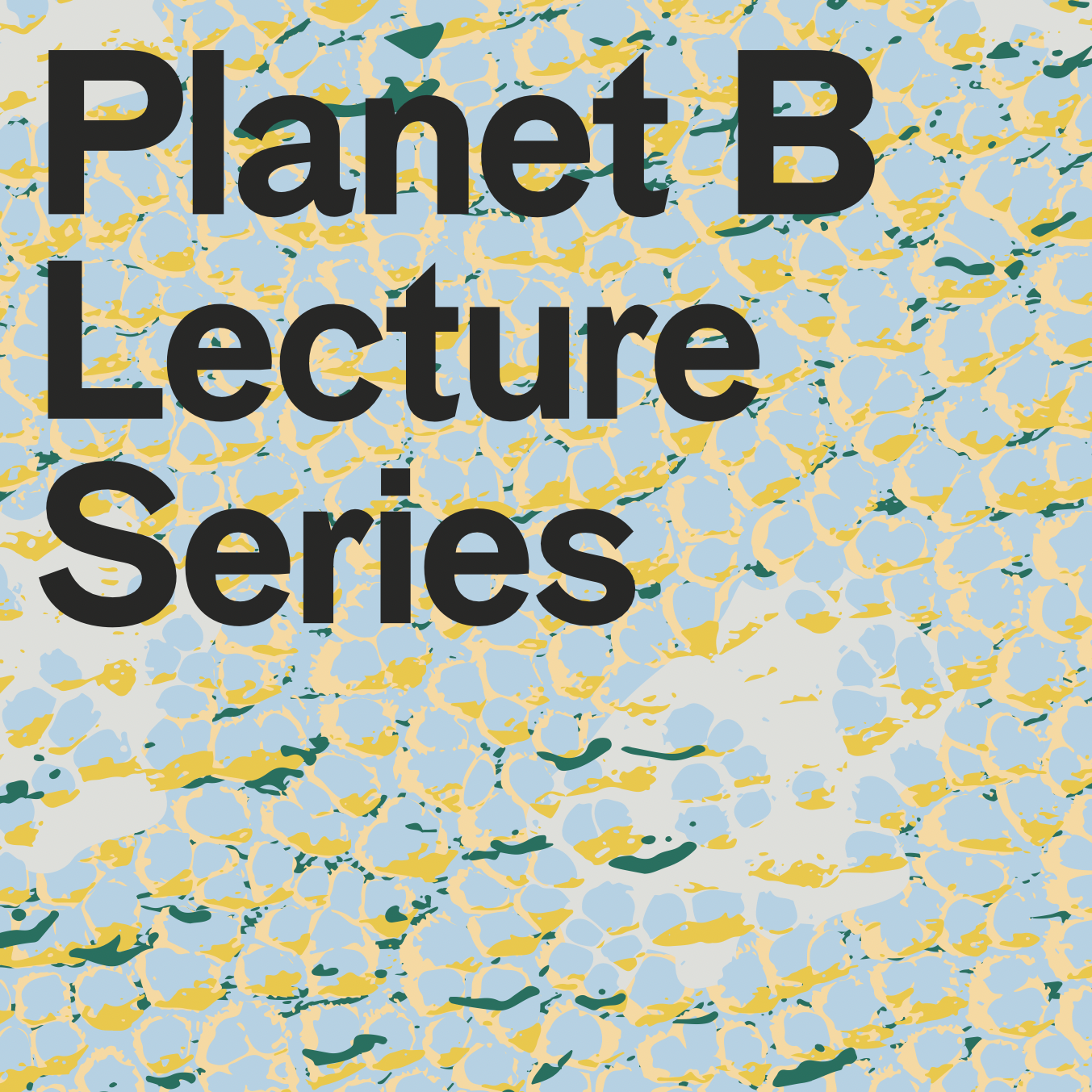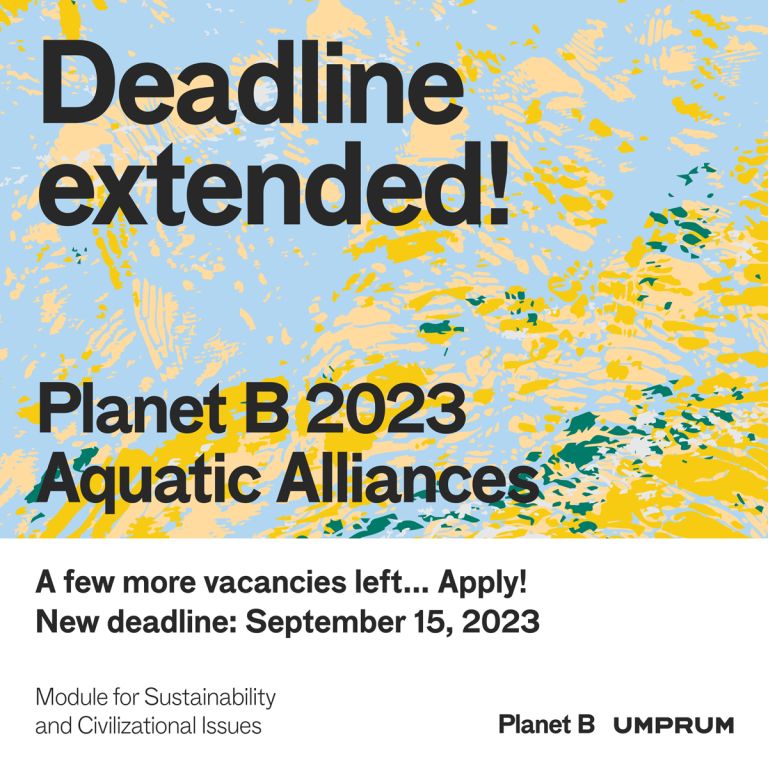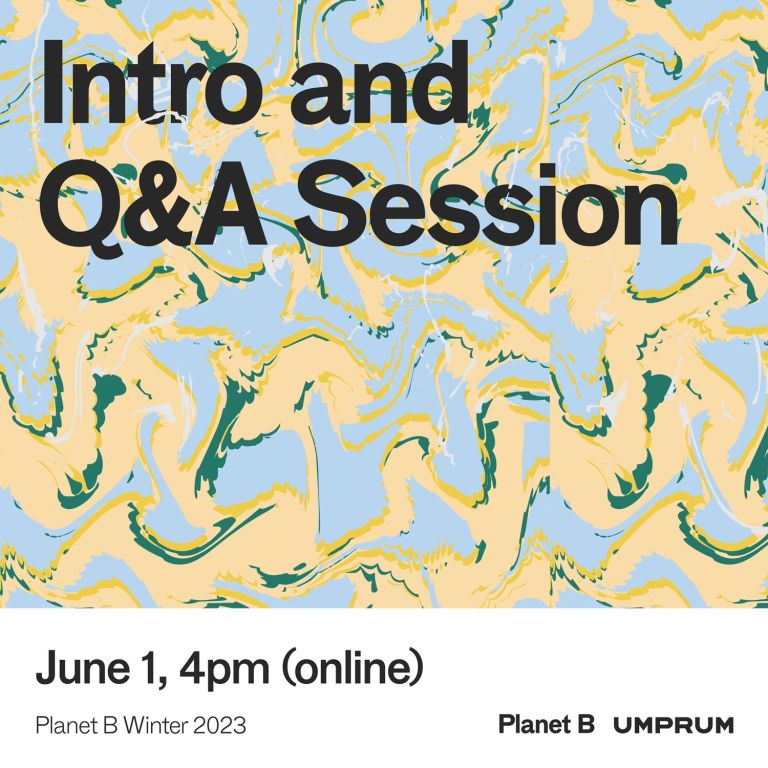Planet B
Module for Sustainability and Civilizational Issues
We only have one planet. However, due to human activity, the Earth's ecosystem is changing irreversibly, and everything else will change accordingly: the way we live, produce, move, eat or communicate. How will this process unfold and what will Planet B look like, is (partly) up to us.
Planet B is a space for transdisciplinary experimental practice and teamwork at UMPRUM. Its next edition will take place in the winter semester 2023!
Information on the previous edition (winter semester 2022) and the archive of final projects can be found at www.planetb.fun.
In short
- In the winter semester 2023, Planet B will be coordinated by design theorist Klára Peloušková and architect Veronika Miškovičová (contact at the bottom of the page)
- The theme of the semester will be "Aquatic Alliances". We will focus on future scenarios for water ecosystems.
- The module will include many lectures, debates and workshops with experts from both artistic and non-artistic fields.
- Planet B has the format of a studio exchange. It replaces semestral studio work and the end-of-semester project (klauzura).
- Planet B is open to students enrolled in the 2nd year of their BA studies or higher, irrespective of their field of study.
- Application Deadline extended until September 15, 2023.
Project work on Planet B
Art, design and architecture approach complex issues of the contemporary world in a non-conventional and critical way and it is apparent that society needs such an approach more than ever today. Project work on Planet B is based on systems thinking, drafting of possible future scenarios and creation of artifacts or concepts that help to materialize them.
Foundational Principles
- Transdisciplinarity: Planet B interconnects creative disciplines developed at UMPRUM as well as other scientific fields or domains of human activity.
- Emphasis on research and process: Project work results in concrete outcomes, however, the process of research and practice is considered more important than formal and technical execution of the final artifacts.
- Teamwork: Students will use the knowledge and skills specific to their specialization, however, the aim is to temporarily “dissolve” these specifics into a new collective creative entity.
- “Diffused” leadership: Coordinators of the project work will involve a variety of mentors from both artistic and non-artistic fields.
- Collaboration with the public and non-profit sector: Partnerships will be developed with institutions such as environmental and social NGOs, educational, research and other public institutions, design and material agencies, experimental technology labs etc.
Methodological Essentials
- Productive Naivety: A school is a place to learn and to experiment. We do not need to save the world – instead, we are here to ask relevant, difficult questions and to make bold, provocative propositions.
- Dealing with Complexity: Problems we’re facing are often “wicked”, meaning they can’t be precisely defined and fixed by one-dimensional solutions. Art and design allow for indeterminacy and uncertainty to be acknowledged and for complexity to be navigated with curiosity and unorthodoxy.
- Dealing with Cross-scalarity: Both the past and the future of Planet B transcend us greatly. Large temporal and spatial scales should not be overlooked even in projects that primarily address the local or even the microscopic.
- Systems, Scenarios and Strategic Thinking: Thorough consideration of possible future scenarios makes it possible to uncover ambiguous relationships in complex systems as well as opportunities for strategic decisions.
- Pragmatic Speculation: We approach every speculation as real and inherently political. Every idea has multi-layered implications and we need to take responsibility for any proposition.
Theme of the Winter Semester 2023
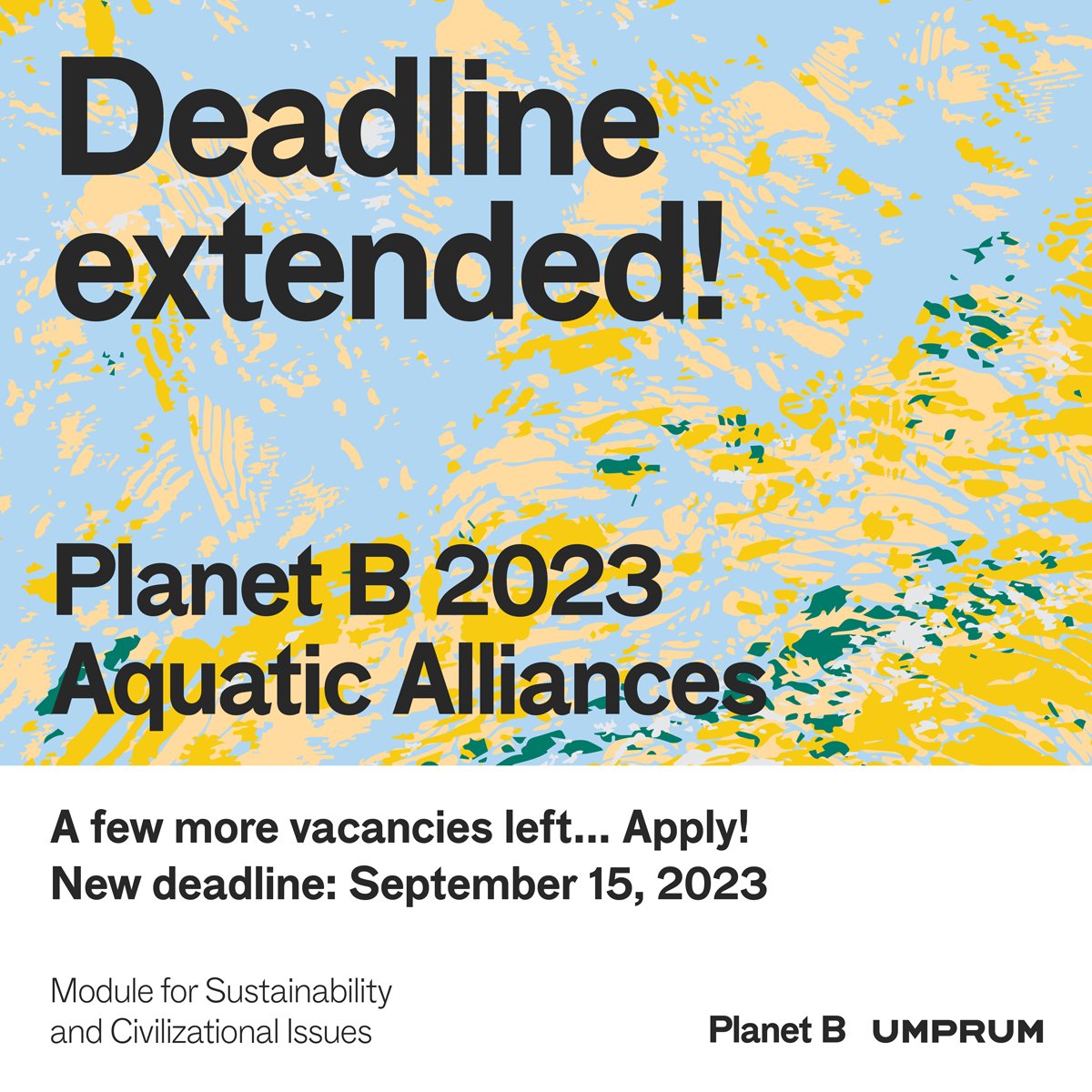
Download the handbook with a detailed description of the theme and the program here.
Aquatic Alliances
Water is so much more than a transparent, homogeneous fluid. It mediates relationships and dependencies between living and non-living matter, while its various forms and manifestations are symptomatic of long-term, hardly perceivable processes of climate change. In fact, most climate impacts are directly related to water – too much, too little, or too dirty – yet the ways water systems are cared for remain largely inadequate. The question is, how can we engage with these intricate assemblages, and what do we need to know in order to do so ethically and effectively?
Both fresh- and seawater ecosystems need to be treated holistically. That requires a thorough consideration of complex entanglements across places, objects or concepts we often approach in isolation: Hydrosphere is inseparable from atmosphere and biosphere, just like “urban” environments can’t be detached from “rural” ones. Technological innovation needs to go hand in hand with traditional water management practices and abstract (e.g. financial) valuation must reflect material conditions of the water cycle. Luckily, hydrological systems demonstrate deep integration of various processes in a tangible way – and we can learn a lot from them in order to restore the links that have seemingly evaporated.
Aquatic Alliances are emerging more-than-water compositions that include various agents: raw inorganic matter, vegetal, animal and other non-human species, low-tech and high-tech tools, human-imposed rules and humans themselves. These systems may be steered into hopeful directions, yet they will always entail contradictions and ambiguities. Be it with the focus on biotechnologies, wetlands restoration or precision irrigation, we'll map interactions among the diverse entities in various scales and based on observable tendencies and possible civilizational pathways, we’ll draft imaginative scenarios of their potential developments. We’ll imagine artifacts and concepts intrinsic to these futures and watch what they can tell us about uncertainties of tomorrow and opportunities of today.
Coordinators of the project work in the winter semester 2023: Klára Peloušková (Department of Design / Department of Art History and Theory, UMPRUM), Veronika Miškovičová (Department of Architecture, UMPRUM)
Outcomes
1. Over the course of the semester, we'll collectively produce a set of possible future scenarios related to the implementation of selected tactics and tools in the context of caring for water ecosystems across scales. The scenarios will be articulated on a general level, but also targeting the social, economic and environmental aspects of specific sites. The outcomes will have the form of texts, maps, diagrams, sketches and other visual material.
2. Subsequently, the teams will create particular artifacts, concepts or stories that will zoom in on and enable to partly experience given situations in their complexity. The form of the outcome is not predefined, although digital media will be prioritized.
Lectures and workshops
The module will offer various lectures, debates and workshops with local and international experts from both artistic and non-artistic fields (such as microbiology, meteorology, water management and others). The program will focus on:
- theoretical, historical or political aspects of the semester’s theme
- research and creative methods for interdisciplinary practice
- systemic, scenarios and strategic thinking
How to Apply
Join an online Intro and Q&A session with the program's leads Klára Peloušková and Veronika Miškovičová on June 1, 2023 at 4pm: https://cesnet.zoom.us/j/98470188014
In case of interest to participate in the program of Planet B, send an e-mail to Klára Peloušková (klara.pelouskova@umprum.cz) by September 15, 2023.
Please include in the e-mail:
- which studio (and institution) you are a student of
- which year of study you are currently enrolled in
- a short description of your motivation to take part in the module (approx. 1000 characters)
- your portfolio (in the form of a link or a PDF)
The applicants will be notified about the results of the application process by September 20, 2023. Any inquiries can be sent to the same e-mail address.
Planet B 2023 will start in early October 2023 and run through January 2024. The module operates on the basis of a studio exchange and is equivalent to semestral studio work and the end-of-semester project (“klauzura”), amounting to a total of 16 ECTS credits. Exchange students are welcome to sign up for supplementary courses offered by UMPRUM in the given semester. The module's classes take place on Mondays and Thursdays. Although some events of the program may take place online, it is not possible to participate in the module remotely.
Planet B is open to students enrolled in the 2nd year of their BA studies or higher. It is aimed predominantly at students of art, design, architecture and art/design/media theory, however, students of other disciplines are welcome to apply as well.
In case of involvement of any international students, the entire program will be realized in English. In case you want to apply for funding (Erasmus, freemover or the like), please contact us before the respective deadline at your home institution.
The participants will receive further information on the content and schedule of the module (including confirmed guests) over the course of summer.
